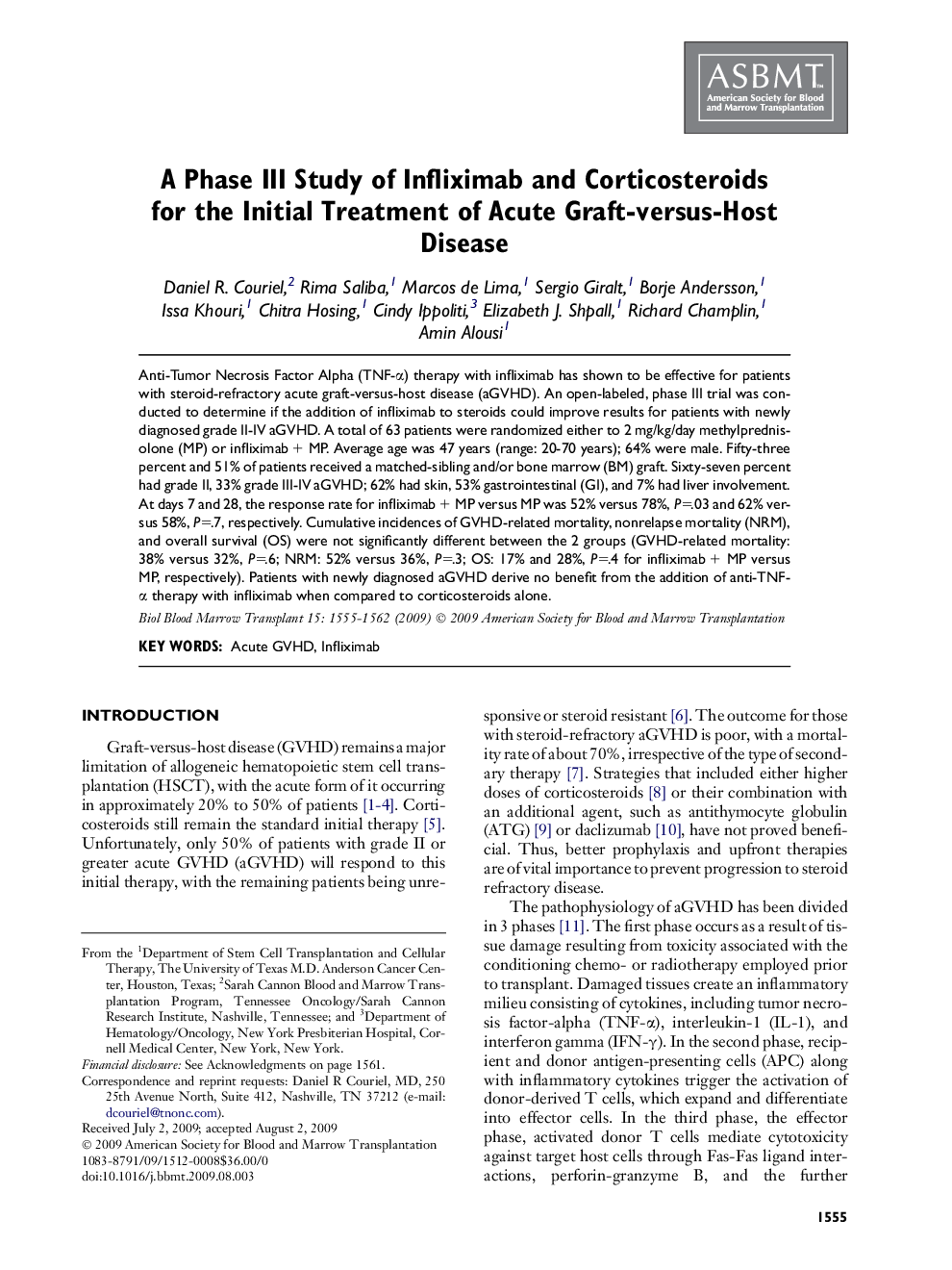| Article ID | Journal | Published Year | Pages | File Type |
|---|---|---|---|---|
| 8431683 | Biology of Blood and Marrow Transplantation | 2009 | 8 Pages |
Abstract
Anti-Tumor Necrosis Factor Alpha (TNF-α) therapy with infliximab has shown to be effective for patients with steroid-refractory acute graft-versus-host disease (aGVHD). An open-labeled, phase III trial was conducted to determine if the addition of infliximab to steroids could improve results for patients with newly diagnosed grade II-IV aGVHD. A total of 63 patients were randomized either to 2 mg/kg/day methylprednisolone (MP) or infliximab + MP. Average age was 47 years (range: 20-70 years); 64% were male. Fifty-three percent and 51% of patients received a matched-sibling and/or bone marrow (BM) graft. Sixty-seven percent had grade II, 33% grade III-IV aGVHD; 62% had skin, 53% gastrointestinal (GI), and 7% had liver involvement. At days 7 and 28, the response rate for infliximab + MP versus MP was 52% versus 78%, P=.03 and 62% versus 58%, P=.7, respectively. Cumulative incidences of GVHD-related mortality, nonrelapse mortality (NRM), and overall survival (OS) were not significantly different between the 2 groups (GVHD-related mortality: 38% versus 32%, P=.6; NRM: 52% versus 36%, P=.3; OS: 17% and 28%, P=.4 for infliximab + MP versus MP, respectively). Patients with newly diagnosed aGVHD derive no benefit from the addition of anti-TNF-α therapy with infliximab when compared to corticosteroids alone.
Keywords
Related Topics
Life Sciences
Biochemistry, Genetics and Molecular Biology
Cancer Research
Authors
Daniel R. Couriel, Rima Saliba, Marcos de Lima, Sergio Giralt, Borje Andersson, Issa Khouri, Chitra Hosing, Cindy Ippoliti, Elizabeth J. Shpall, Richard Champlin, Amin Alousi,
